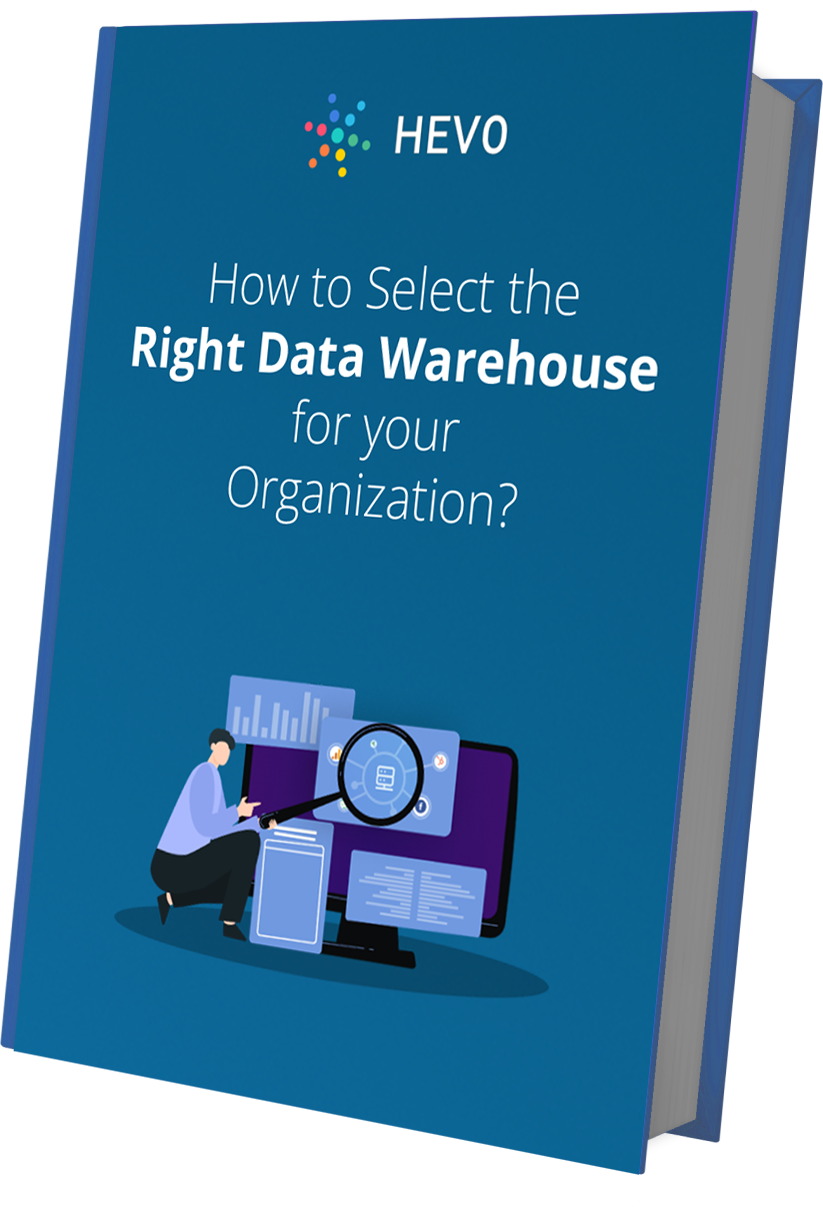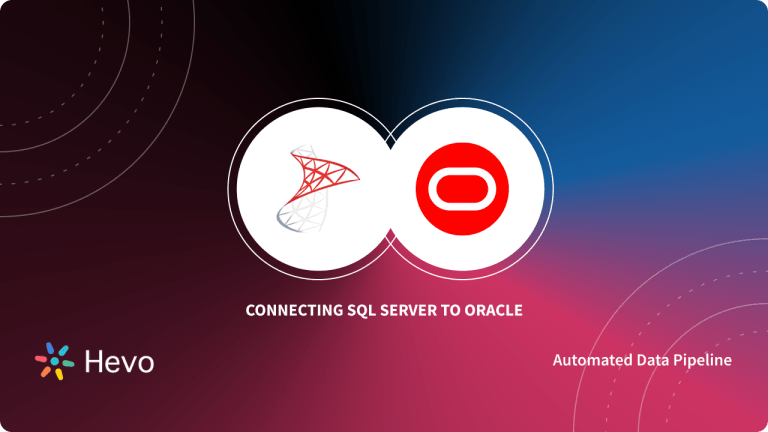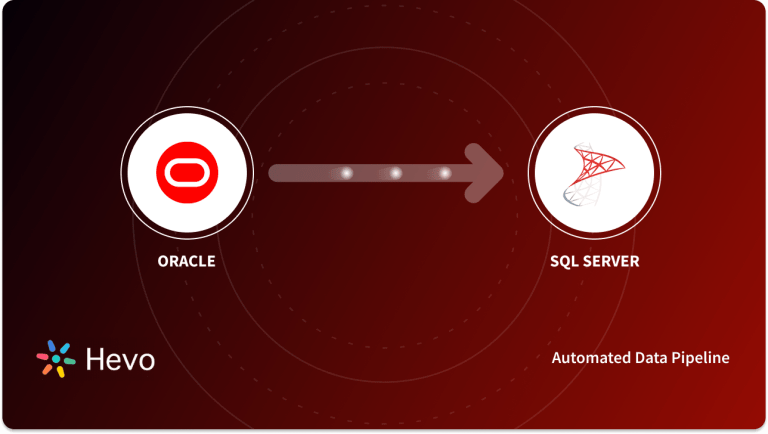Competition among companies plays a pivotal role in laying the foundation for high-quality products and services for customers. When it comes to the field of Database Management, the choice of Oracle vs SQL Server is a relatively tough one. This is pretty common in emerging and competitive fields such as Data Analytics. Having a majority customer share in the market and regularly updating your products & services does determine the revenue your organization generates.
Oracle is owned by Oracle Corporation and is used by many companies because of its unique capabilities such as powerful software, support for parallel and distributed databases, better indexing, and many more. SQL Server is owned by Microsoft whose fundamental aim is to provide a platform to create, manage and manipulate databases. Many factors play a role in determining the database that suits your needs and it is important to address them before making a decision.
This article provides you with a comprehensive analysis of both databases and highlights the major differences between them to help you make the Oracle vs SQL Server decision with ease. It also provides you a brief overview of both databases along with their features. Finally, it highlights a few challenges you might face when you use these databases. Read along how you can decide the right database for your organization.
Table of Contents
Overview of Oracle Database
Oracle offers a multi-model Database Management System popularly leveraged for Data Warehousing, Online Transaction Processing, and mixed database workloads. Oracle database runs on various major platforms like Linux, UNIX, Windows, and macOS.
Grid Computing aims to solve a few common problems faced by Enterprise IT by producing more resilient and lower-cost operating systems. This style of architecture allows Oracle to deliver a comprehensive database at a lower cost with greater flexibility and a higher quality of service.
Oracle delivers on-the-grid computing functionality to focus on providing its users with centralized management, robust security infrastructure, universal access, and powerful development tools.
Hevo is a no-code data pipeline platform that supports Oracle Database and SQL Server as Sources. Its intuitive User interface ensures that data integration is simple and that the pipeline is set up in minutes.
- With its robust transformation capabilities, Hevo ensures that your data is always ready for analysis.
- Hevo’s cost-efficient pricing makes sure you only pay for what you use.
- Its fault-tolerant architecture ensures your data is always secure and there is no data loss
Try Hevo for free today to experience seamless migration of your data!
Get Started with Hevo for FreeOverview of SQL Server
SQL Server is a database system that stores structured, semi-structured, and unstructured data. It supports languages like Python and helps you extract data in different formats from different sources, sync it, and maintain consistency. The database provides controlled access to the data, making SQL Server more secure and ensuring regulatory compliance. See how SQL server migration can be done easily.
Oracle vs SQL Server: Quick Comparison
While both, Oracle and SQL Server offer robust features for data storage, retrieval, and management, they differ significantly in terms of cost, ease of use, platform compatibility, and advanced features.
1. Ease of Use:
- SQL Server: Generally considered more user-friendly, especially for developers familiar with the Microsoft ecosystem. Its simpler syntax and tighter integration with Microsoft tools can make it easier to learn and manage.
- Oracle: Can have a steeper learning curve due to its more complex syntax and advanced features.
2. Platform Compatibility:
- SQL Server: Primarily runs on Windows operating systems, with limited support for Linux.
- Oracle: Supports a wider range of operating systems, including Windows, Linux, and Unix, offering greater flexibility in deployment options.
3. Cost:
- SQL Server: Often offers more competitive pricing options, particularly for smaller deployments and cloud-based deployments.
- Oracle: Can be more expensive, especially for large deployments and advanced features.
4. Performance and Features:
- SQL Server: Provides strong performance for most business applications and integrates well with other Microsoft products.
- Oracle: Excels in handling large, complex workloads, offering advanced features like parallel query execution and complex query optimization, making it suitable for high-performance applications and data warehousing.
5. Language:
- Oracle: Uses PL/SQL, which can have variations in syntax and functionality compared to T-SQL.
- SQL Server: Uses Transact-SQL (T-SQL).
Oracle vs SQL Server: Key Differences at a Glance
| Factor | Oracle | SQL Server |
| Parent Company | Owned by Oracle Corporation, supports multiple platforms (Windows, Linux, Solaris, etc.). | Owned by Microsoft, primarily supports Windows; Linux support added recently. |
| Query Language | Uses PL/SQL and SQL. | Uses T-SQL. |
| Ease of Use | More complex due to advanced syntax and features. | Simpler syntax, easier to use for beginners. |
| Query Optimization | Star optimization technique for queries. | No specific query optimization technique. |
| Execution Mode | Executes SQL commands (e.g., INSERT, UPDATE) in parallel. | Executes SQL commands serially. |
| Backup Types | Offers full, differential, file-level, and incremental backups. | Offers full, partial, and incremental backups. |
| Triggers | Supports both “before” and “after” triggers. | Primarily supports “after” triggers. |
| Pricing | Flexible pricing with free Express Edition; other editions are paid. | Standard and Enterprise editions; pricing starts from $899. |
Oracle vs SQL Server Differences – Detailed Comparison
Now that you have a basic idea of both technologies, let us attempt to answer the Oracle vs SQL Server question. There is no one-size-fits-all answer here and the decision has to be taken based on the business requirements, budget, and parameters listed below. The following are the key factors that drive the Oracle vs SQL Server decision:
- Parent Company, Platform Support & Language
- Usage & Database Sharing Features
- Syntax
- Job Schedulers, Query Optimization & Triggers
- Mode of Execution & Backups
- Rollback & Redo Streams
- Support, Trouble Shooting & Error Handling Capabilities
- Data Accessing Methods
- Automation Support, Parallel Execution & Sharability
- Pricing Models
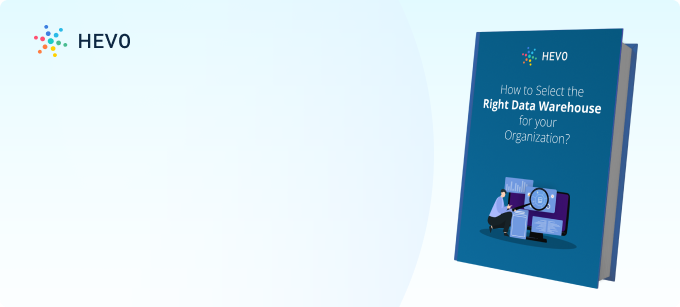
1) Parent Company, Platform Support & Language
Oracle is owned by Oracle Corporation and can run on a wide variety of platforms such as Windows, Linux, Solaris, HP-UX, and OS-X. Oracle supports PL/SQL and SQL language to write queries to access data from its database.
SQL Server is owned by Microsoft and can only be used on the Windows platform. Recently, the 2017 version of SQL Server can be run on Linux platforms as well. SQL Server uses the T-SQL(Transact-SQL) language to write queries to access data from its database.
2) Usage & Database Sharing Features
Oracle is complex to use because its syntax is a little complicated as compared to SQL. It allows users to easily share databases. It also supports packages and is backed by powerful software. The architecture of Oracle is shown below.
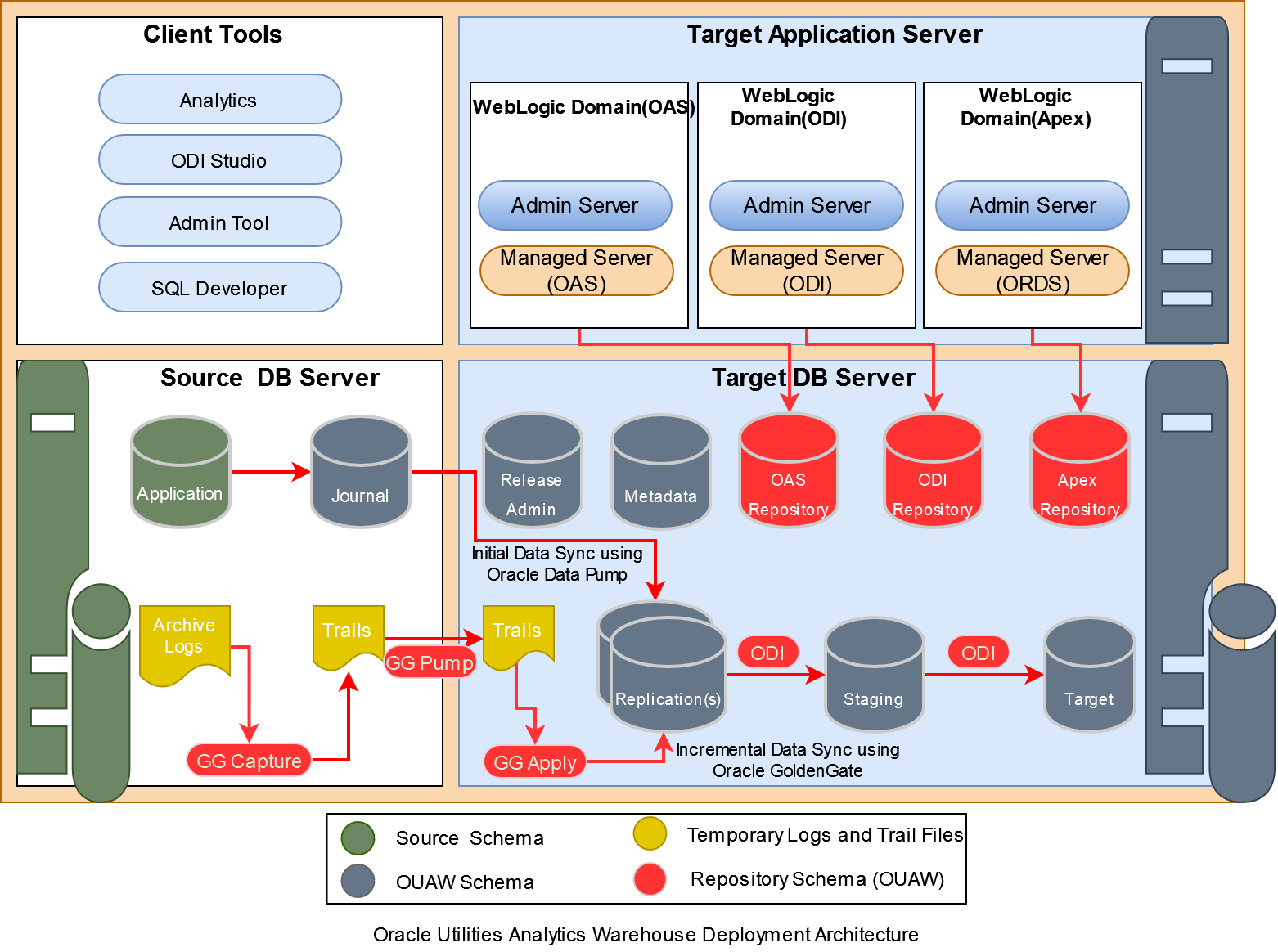
SQL Server is simple to use as its syntax is similar to SQL. It does not allow users to share the database. It does not use packages and its processing software power is less than Oracle. The architecture of SQL Server is shown below.
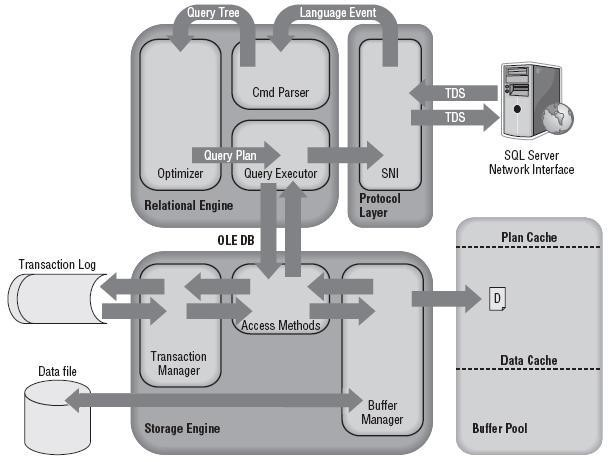
3) Oracle vs SQL Server Syntax Differences
The syntax supported by both databases is quite different from each other. The syntax followed by Oracle is a bit complex as compared to SQL Server.
The Oracle syntax for creating a table, selecting records from the current table, updating records in the current table, and inserting records into the table is shown below.
Creating a table:
CREATE TABLE department (
dept_id int,
dept_name varchar(255),
numofemp int,
CONSTRAINT department_pk PRIMARY KEY (dept_id));Selecting records from the table:
SELECT * FROM department;Updating records in the table:
UPDATE department SET dept_id = ’11’ WHERE dept_name = ‘Marketing’;Inserting records into the table:
INSERT INTO department(dept_id,dept_name,numofemp) VALUES(‘2’,’Engineering’,’510’);The SQL Server Syntax to create a table, selecting records from the table, updating the records in the table, and inserting records into the table is shown below.
Creating a table:
CREATE table DepSelecting records from the table:
SELECT *
FROM Dep
ORDER BY LastName;Updating records in the table:
UPDATE Dep
SET LastName = 'Johnson'
WHERE employee_id = 10;Inserting records into the table:
INSERT INTO Dep
(employee_id, LastName, FirstName)
VALUES(10, 'Anderson', 'Sarah');4) Job Schedulers, Query Optimization & Triggers
Jobs are scheduled in Oracle via the Oracle scheduler or OEM. It uses the star optimization technique to optimize its query performance. Triggers are a set of rules applied to databases to maintain the relationships between attributes in the database. Oracle uses both before and after triggers in its database.
Jobs are scheduled in SQL Server via the SQL Server Agent. It does not use any query optimization technique and mostly uses after triggers in its database.
5) Mode of Execution & Backups
All the major SQL statements in Oracle like INSERT, UPDATE, DELETE, and MERGE are executed in parallel. Oracle maintains differential, full, file-level, and incremental backups of its data regularly.
The major SQL statements in SQL Server like INSERT, UPDATE, DELETE, and MERGE are executed serially. SQL Server maintains full, partial, and incremental backups of its data regularly.
6) Rollback & Redo Streams
When transactions take place in Oracle, they can be rolled back. It also supports one redo stream that is available at the database level.
When transactions take place in SQL Server, they cannot be rolled back. Also, every user has his own redo stream.
7) SQL Server vs Oracle: Support, Troubleshooting & Error Handling Capabilities
The customer care, troubleshooting, and support of Oracle are available 24×7 and answer your queries in a timely manner, but you will be charged for each support call depending on the support case. Error Handling is also managed efficiently as Oracle treats each new database transaction as a new connection.
SQL Server, on the other hand, provides technical notes, bug descriptions, scripts, patches, and updates without any additional charges. However, the error handling capabilities in SQL Server are not very elaborate as SQL Server executes each command separately and so it is quite difficult to rectify any errors encountered in the process.
8) Data Accessing Methods
Oracle makes use of bitmaps and indexes to access data in its database. Also, data values are only changed after an explicit commit statement. This ensures consistency of data and helps rollback transactions to their previous state, in case any errors are faced.
SQL Server does not use bitmap indexes to access data in its database. Instead, it uses reverse keys and functions to access data. Data Values can change even before being committed in SQL Server. This can cause issues in identifying errors and correcting them.
9) Automation Support, Parallel Execution & Shareability
Oracle offers automation support through its database upgrade assistant. It also supports parallel query execution and incorporates multiple database schemas/blueprints into one instance. The subset collection of these database schemas are shared between all the schemas and users.
SQL Server offers automation support through the SQL upgrade advisor. It does not support parallel query execution and every database has its own unshared file disk on the server.
10) Pricing Models
The pricing model for Oracle is designed to fit the company’s budget and goals. Oracle offers 4 editions for their customers- Oracle Database Standard Edition 2, Oracle Database Enterprise Edition, Oracle Database Personal Edition, and Oracle Database Express Edition. The Express Edition is free for students and is portable on any machine.
To use all the other editions, you need to make a small payment. Companies can decide on each edition based on the rates they are charged. In order to use an edition, companies need to contact the Oracle team and they will give the details on the pricing.
The editions that Oracle offers are shown below:
Learn more about the Pricing of Oracle from the official website.
The pricing model of SQL Server comes in 2 main editions- Standard and Enterprise. Both these editions are free of charge and have 4 main subdivisions: Standard Edition costs $3,586, Enterprise Edition costs $13,748, Standard Server Edition costs $899 and the Standard CAL Edition costs $209.
The pricing model for SQL Server is given below.
Learn more about the Pricing of SQL Server from the official website.
Which tool to Choose When?
When to Choose SQL Server:
- You primarily use Microsoft products: If your organization heavily relies on Windows and other Microsoft technologies, SQL Server can offer seamless integration and a more familiar environment.
- Ease of use is a priority: If you require a relatively easy database to learn and manage, especially for teams with limited database expertise.
- Cost is a major concern: SQL Server can offer more affordable options if budget constraints are a significant factor.
When to Choose Oracle:
- You require high performance for large, complex datasets: If you need to handle massive amounts of data and require advanced features like parallel query execution.
- Platform independence is crucial: If you need to deploy your database across various operating systems.
- Your team has expertise in Oracle: If your organization has a skilled Oracle database administration team, it requires advanced features like Oracle’s RAC (Real Application Clusters).
Challenges of Oracle
Although Oracle is a popular database with regular patches, unique and innovative features, it does have a few limitations. Some of those challenges include:
- Oracle’s Enterprise Edition is the only free edition and it is licensed only for commercial purposes. This means that very few people can access and learn it.
- All of the prices, updates, and patch notes are only known to Oracle Corporation, which means that the public cannot try and come up with a solution for various problems. This reduces the transparency of the product.
- Learning the syntax of Oracle is a little complex as compared to the traditional SQL syntax used by popular RDBMSs and also NoSQL databases like MongoDB.
Despite these challenges, Oracle has numerous advantages that companies can leverage into their business processes.
Challenges of SQL Server
Now that you have a good idea about SQL Server, it is now important to understand some of its challenges. The challenges of SQL Server are:
- SQL Server is a less powerful database purely in terms of software design and processing power.
- It has poor indexing and data accessing features.
- In some cases, the relationship between objects and relations can get corrupted.
Despite these challenges, SQL Server has managed to be in the top positions and many organizations still continue to use it in their organizations.
You can also read more about:
- MongoDB vs SQL Server
- MySQL vs SQL Server
- BigQuery vs SQL Server
- Snowflake vs SQL Server
- Redshift vs SQL Server
Conclusion
This article gave a comprehensive analysis of the 2 popular database technologies in the market today: Oracle and SQL Server. It gives a brief overview of both the databases and their features and challenges. It also gave the parameters to judge each of the databases. Overall, the Oracle to SQL Server choice solely depends on the goal of the company and the resources it has.
Oracle is a better choice if your company needs to have a faster processing power backed up by strong software. Oracle has unique features like parallel query processing, timely customer support services, and 24×7 error handling capabilities. SQL Server is a good option if speed and processing power are not your main concern. Even non-technical users can learn it faster than Oracle and it has most of the features of other traditional RDBMSs. Either way, both databases are assets for your business and will help manage your customers and employees in tandem.
Hevo Data, a No-code Data Pipeline helps to load data from any data source such as Databases, SaaS applications, Cloud Storage, SDK,s, and Streaming Services and simplifies the ETL process. It supports Oracle and SQL Server, along with 150+ data sources (including 40+ free data sources), and is a 3-step process by just selecting the data source, providing valid credentials, and choosing the destination. Hevo not only loads the data onto the desired Data Warehouse but also enriches the data and transforms it into an analysis-ready form without having to write a single line of code.
In case you want to integrate data from data sources into your desired Database/destination like Oracle and SQL Server and seamlessly visualize it in a BI tool of your choice, then Hevo Data is the right choice for you! It will help simplify the ETL and management process of both the data sources and destinations.
Want to take Hevo for a spin? SIGN UP and experience the feature-rich Hevo suite first hand. You can also have a look at the unbeatable pricing that will help you choose the right plan for your business needs.
Frequently Asked Questions
1. Is Oracle better than SQL Server?
There is no definitive answer. Oracle is better suited for large-scale, complex applications with high performance needs, while SQL Server is simpler, more affordable, and works well for small to medium-sized businesses. Your choice depends on your specific requirements, platform, and budget.
2. Is Oracle a database or a server?
Oracle is a database management system (DBMS). It provides software for managing and storing data. It can run on a server, but Oracle itself is not a server; it’s a system that handles databases.
3. What is the difference between Oracle schema and SQL Server schema?
In both Oracle and SQL Server, a schema is a way to organize database objects (like tables, views, and procedures).
– In Oracle, a schema is directly tied to a user account. Each user has their own schema.
– In SQL Server, a schema is a container for objects but is not directly tied to a specific user. Multiple users can share a schema in SQL Server.
